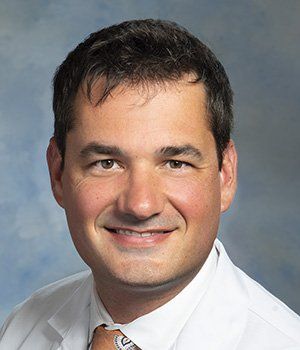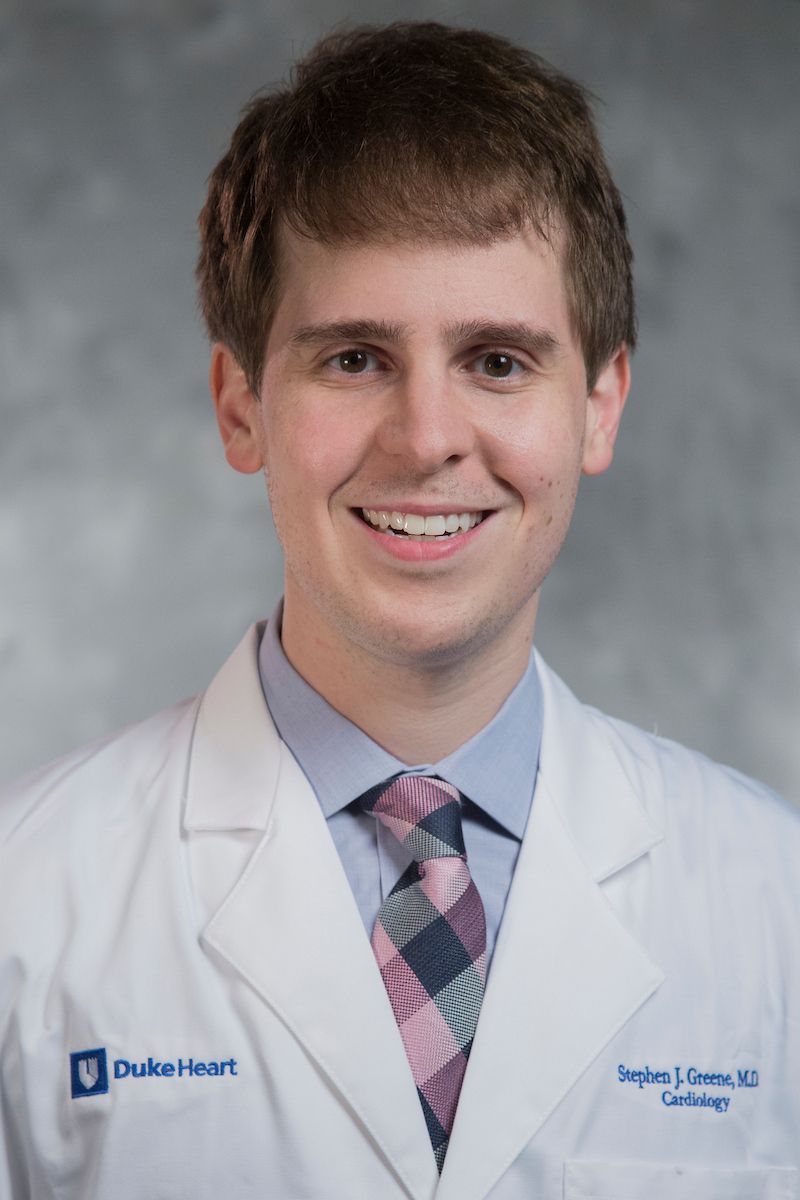Heart Failure Community Argues for Omecamtiv Mecarbil Approval, Citing Unmet Need
Ahead of the PDUFA date for omecamtiv mecarbil, HCPLive reached out to a trio of heart failure specialists to learn about their opinion of the agent based on clinical trial data, their reaction to the November 2022 AdComm vote, and whether they believe the agent warrants approval from the US FDA.
Heart failure management has undergone a revolution in recent years with the introduction of SGLT2 inhibitors to guideline-directed medical therapy (GDMT). Still, many in the field argue there is a clear unmet need for patients who either cannot tolerate GDMT or have an insufficient response to this therapeutic approach.
With this in mind, it is no surprise many were taken aback by the 3-to-8 vote against the benefit-risk profile of omecamtiv mecarbil for the treatment of HFrEF by the US Food and Drug Administration’s Cardiovascular and Renal Drugs Advisory Committee (CRDAC) on December 13, 2022.1 During the meeting, CRDAC members expressed concern over a lack of definitive benefit on cardiovascular death observed in the phase 3 GALACTIC-HF trial, while others claimed the benefit observed in those with severely reduced ejection fraction outlines a clear role for the agent considering the lack of adverse safety signals observed with the selective cardiac myosin activator.1
“My personal experience is that up to half of severe heart failure patients are intolerant of guideline-directed therapy,” argued C. Noel Bairey Merz, MD, the Irwin and Sheila Allen Endowed Chair in Women’s Heart Research of the Barbra Streisand Women’s Heart Center at Cedars-Sinai Medical Center.1 “I anticipate that given the barriers, it will likely be used in a small subset of advanced heart failure cardiologists, offering to me at least a bit more safety.”
“The proposed benefits are small and it appears to me that they are driven in large part by the urgent outpatient visits, not by hospitalization or death,” said Steve Nissen, MD, chief academic officer of the Heart, Vascular & Thoracic Institute at the Cleveland Clinic.1 “If you look at the heart endpoints, it does not appear that there is much of a benefit.”
An 8256-patient trial, GALACTIC-HF randomized patients with symptomatic heart failure and an ejection fraction of 35% or less to omecamtiv mecarbil or placebo therapy as an adjunct to standard heart failure therapy. Designed with primary outcome of interest defined as a composite of a first heart failure event or death from cardiovascular causes. Of note, a first heart failure event was considered hospitalization or urgent visit for heart failure.2
During the follow-up, which had a median length of 21.8 months, a primary outcome event was observed among 37.0% in the omecamtiv mecarbil group and 39.1% in the placebo group (hazard ratio [HR], 0.92 [95% confidence interval [CI], 0.86-0.99]; P=0.03). Results also indicated 19.6% of patients in the omecamtiv mecarbil group and 19.4% in the placebo group died of cardiovascular causes (HR, 1.01 [95% CI, 0.92-1.11]; P=.86).2
In a safety-analysis set, 20.6% of those randomized to omecamtiv mecarbil discontinued use during follow-up compared to 21.9% among the placebo group. Investigators pointed out an adverse event was the reason for discontinuation among 9.0% in the omecamtiv mecarbil group and 9.3% in the placebo group.2
Since initial results were published in 2021, multiple posthoc analyses of the trial and the patient population have come forth purporting a greater benefit in certain patient subgroups, including an analysis presented by Nihar Desai, MD, at the American College of Cardiology 2022 annual meeting. In this particular analysis, which examined a cohort without baseline digoxin use and without atrial fibrillation, use of omecamtiv mecarbil was associated with a reduced risk of first heart failure event and total heart failure events compared with placebo therapy, with an ARR of 14.2 and an NNT of 7. This same analysis indicated cost reductions achieved as a result of heart failure events avoided with omecamtiv mecarbil in this patient group was $928 per patient at 90 days and $6052 per patient over 3 years, which investigators pointed out was a reduction of 26.9% at 3 years.3
With the agent’s February 28, 2023 PDUFA date approaching, HCPLive reached out to a trio of heart failure specialists to discuss their opinion of the agent, reactions to the advisory committee vote, and perspective of the unmet need within heart failure.
Muthiah Vaduganathan, MD, MPH
Courtesy: Brigham and Women's Hospital

Muthiah Vaduganathan, MD, MPH, codirector of the Center for Cardiometabolic Implementation Science at Brigham and Women’s Hospital: This is a unique therapeutic compound specifically designed to target the myocardium in those with heart failure with reduced ejection fraction. Efficacy was enhanced with a severe heart failure phenotype, characterized by especially reduced ejection fraction, recent heart failure hospitalization, or advanced symptoms. Many of these patients are underserved in current care where standard GDMT may not be well tolerated and home infusions of inotropes may be potentially deleterious.
While the magnitude of relative risk reduction was modest, given the heightened absolute risk faced by this population, the absolute risk reduction with omecamtiv mecarbil was considerable. Reducing heart failure events, even without a meaningful signal on cardiovascular death, is clinically meaningful in this difficult-to-manage cohort. Most importantly, the therapy appears to be exceedingly safe as demonstrated by a comprehensive trial program. In my view, OM has a great potential for a niche indication in the management of those with HFrEF with severe phenotypic features.
Andrew Sauer, MD
Courtesy: St. Luke's Mid America Heart Institute

Andrew Sauer, MD, advanced heart failure and transplant cardiologist at St. Luke’s Mid America Heart Institute:Well, my role with omecamtiv macabre was as a major enroller as a site [prinicipal investigator] for patients in the GALACTIC-HF study When I was at the University of Kansas Health System. We enrolled over 20 patients, one of the higher enrolling sites.
I obviously did not know at the time which patients were getting placebo and which patients were getting omecamtiv mecarbil, but I do remember feeling like these patients were patients for whom there were no other great therapy options.
These are patients who I would say were on that cusp of Stage C, entering into the stage D threshold for heart failure. They are patients who maybe lack blood pressure, have less blood pressure reserve, and have a lower ejection fraction. That's a lot of the patients that made up the cohort, with a quarter of them having to come from the hospital. So, these are sick patients.
I really liked the medication because I didn't have to worry as much about the safety concerns that we deal with a lot of the neurohormonal blockade type medicine. So, don't have to worry about losing blood pressure, you don't have to worry about their kidneys nearly as much, and the safety profile was very attractive. When some of these patients had some blood pressure come back, I could then up titrate their other medications.
Again, the study met its primary endpoint. So, I really don't understand why we're struggling to go forward with this. I do believe there is a cohort of patients that really doesn't have a lot of other great options and this is a great medication option for those patients. So, I'm hoping to see an approval. I think a lot of my colleagues feel the same way.
Stephen Greene, MD
Courtesy: Duke University

Stephen Greene, MD, advanced heart failure specialist at Duke Clinical Research Institute: While we are all eagerly awaiting to see what the official FDA decision is for omecamtiv mecarbil, I'll be honest, I was overall very surprised and disappointed with the advisory committee decision. To me, it's a pretty simple thing when I'm considering omecamtiv mecarbil and the patient population.
Heart failure is an extreme-risk condition with a high risk of death and hospitalization, even with currently available therapies and some patients cannot even tolerate those therapies. So, I think there is a huge unmet need, and it's an extreme risk condition we're talking about with heart failure. This patient population really needs all the help they can get. I'll just have that as the background.
Just looking at safety within the trial data from omecamtiv mecarbil, to my knowledge, there is no randomized evidence of any significant safety concerns with the drug that includes more than 8000 patients in the GALACTIC-HF trial and some of the earlier studies, like the COSMIC study. Yes, there are some theoretical concerns about ischemia as well asmyocardial injury with troponin, but there is no randomized evidence from a clinical event standpoint to my knowledge, to really go with those theoretical concerns.
So, in my opinion, I think safety is a reassuring checkbox that has been met. Then you look at efficacy. The GALACTIC-HF trial hit the primary endpoint and met statistical significance. There was even a biologically plausible subset of those with lower ejection fraction or severe heart failure where the drug’s magnitude of benefit was heightened.
To put it all together, I think we have very reassuring safety from a large global clinical trial of 8000 patients and we also have efficacy that was statistically significant and was amplified in a biologically plausible subset. So, we have a huge unmet need with an extreme risk condition that needs all the help we can get. With omecamtiv mecarbil, you have a safe and what I would say is an effective therapy based on the clinical trial evidence. To me, I was surprised by the advisory committee decision, but we'll have to wait and see what the FDA officially decides.
References:
- Iapoce C. FDA CRDAC recommends against Omecamtiv Mecarbil for hfref. HCP Live. https://www.hcplive.com/view/fda-cardiovascular-renal-drugs-advisory-committee-nda-omecamtiv-mecarbil. Published December 13, 2022. Accessed February 27, 2023.
- Teerlink JR, Diaz R, Felker GM, et al. Cardiac myosin activation with Omecamtiv Mecarbil in systolic heart failure. New England Journal of Medicine. 2021;384(2):105-116. doi:10.1056/nejmoa2025797
- Campbell P. Finding the optimal role for Omecamtiv Mecarbil in HFREF, with Nihar Desai, MD, MPH. Practical Cardiology. https://www.practicalcardiology.com/view/finding-the-optimal-role-for-omecamtiv-mecarbil-in-hfref-with-nihar-desai-md-mph. Published November 5, 2022. Accessed February 27, 2023.